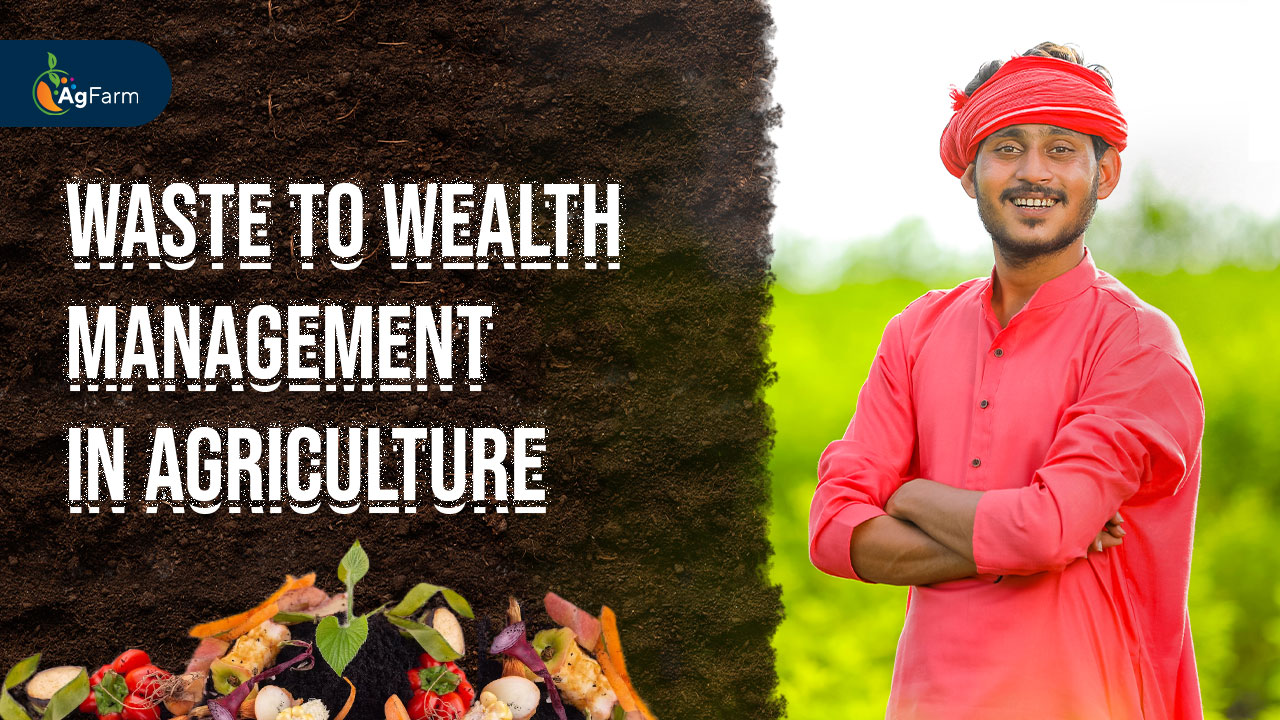Accumulation of waste products in any business is mandatory. It becomes a challenge to manage that waste and maintain the ecosystem. The agricultural sector is no exception. Along with the production of various food products, fibers, and raw materials, it also generates lots of waste material.
This waste becomes a burden for farmers, and it often leads to monetary losses and environmental pollution.
But now you don’t need to worry. The latest update is that this agricultural waste can easily be managed and converted into wealth. In this blog, you will read more about waste-to-wealth management in agriculture.
What is Agricultural Waste?
Dear friends, agricultural waste is the byproduct or residue generated during the process of harvesting, farming, and other related procedures. It could be manure, residue, food waste, or packaging material waste.
These wastes are generally drained into water bodies and contaminate water. Or they are burnt or collected in a separate area that leads to environmental hazards. Managing this waste is one of the biggest challenges for farmers.
Waste to Wealth Management- How It Works?
Waste-to-wealth management is the latest advancement that aims to reduce waste generation, minimize environmental pollution, and utilize waste. Several methods can be implied to convert these agricultural wastes into valuable and eco-friendly products.
Bio-energy Production
One of the most efficient methods of waste-to-wealth management is bio-energy production. In this method, animal manure or crop residue is converted into other renewable products, including biogas and biofuels.
Biogas can also be produced by anaerobic digestion. Bioethanol and biofuels are other renewable sources of energy prepared from agricultural wastes.
Organic Fertilizers
Another method of turning waste into wealth is preparing organic fertilizers. Crops residue and animal manure are converted into natural fertilizer by the method of composting. It increases soil fertility and minimizes the use of synthetic fertilizers.
Value-Added Products
Agricultural wastes can also be utilized in producing value-added products. Some bioactive compounds like fragrances, flavors, and dyes can be prepared from fruit residue or peels, and seed husks. Crop residues can be used for preparing bio-degradable packaging materials. These products are easily sustainable and eco-friendly.
Benefits of Waste to Wealth Management in Agriculture
There could be several benefits of implementing waste-to-wealth management in agriculture. Let’s have a look:
- This method utilizes the waste products and minimizes their disposal into the environment. Hence it minimizes environmental pollution.
- It is a cost-saving method and increases the profitability of farmers.
- It creates new avenues for employment. As a large section can be employed in performing the tasks.
- It reduces the dependency of farmers on external sources.
- All the by-products prepared from waste are renewable and eco-friendly.
- It circulates the economy and promotes rural entrepreneurship.
Conclusion
Considering the worsening environmental conditions and availability of resources, waste-to-wealth management is the most suited option for farmers. It does not help them to manage their crops and animal wastes but also saves them time and money.
Waste to wealth management in agriculture leads to sustainable development. The government is also actively promoting it by providing essential incentives to rural sectors.
So, without any delay transform agriculture challenges into development with the waste to wealth management methods.


